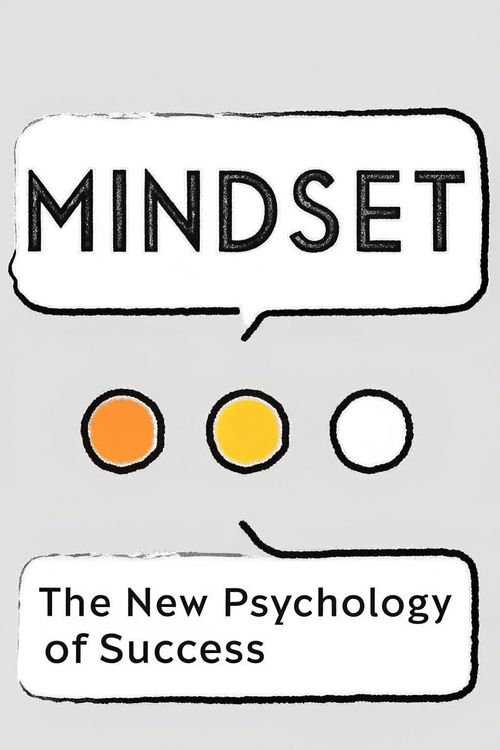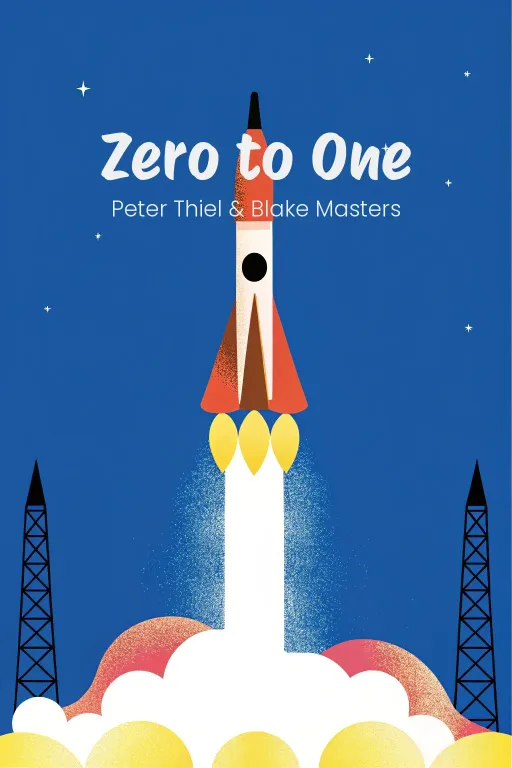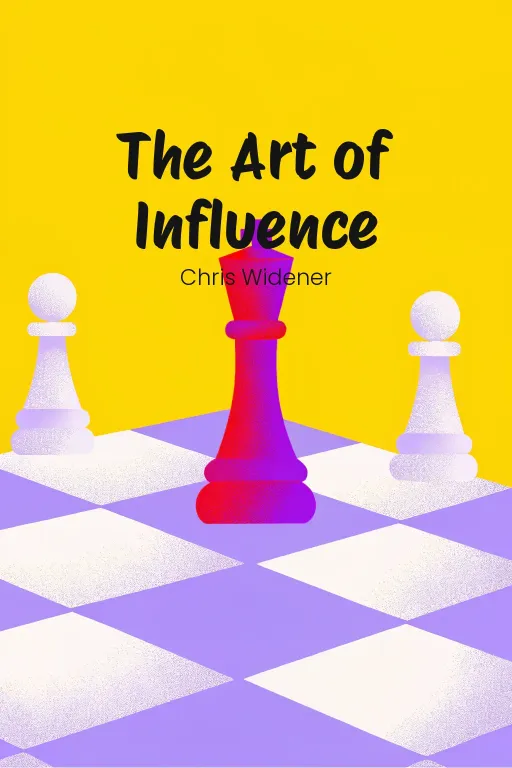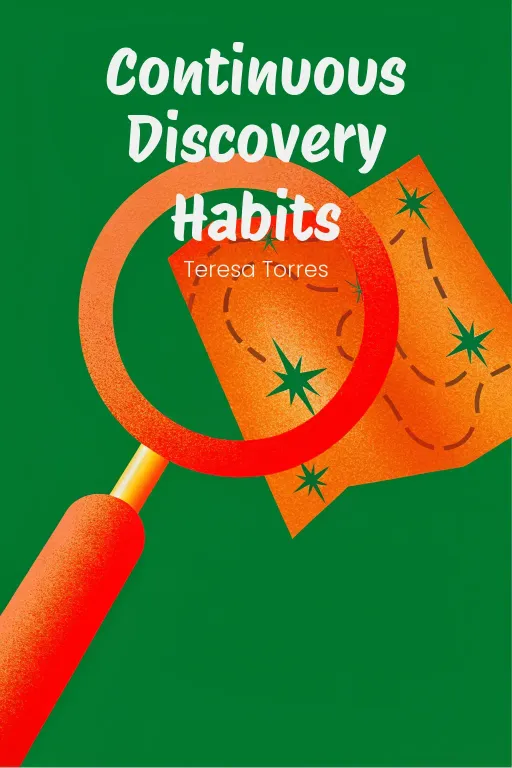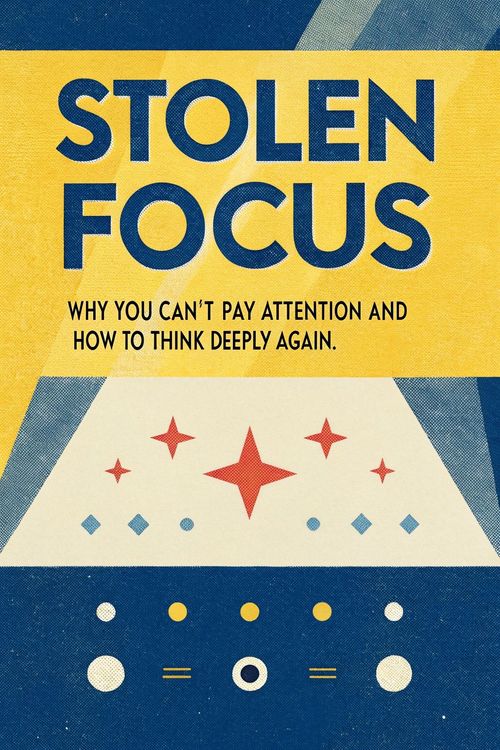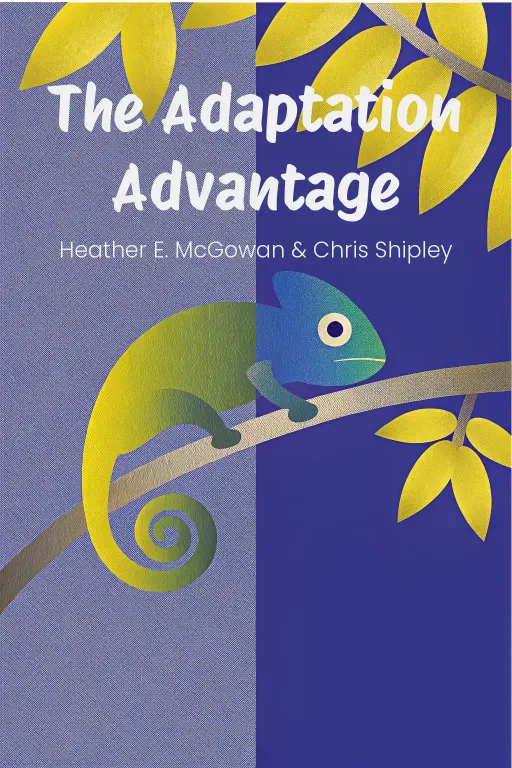
Beyond the Trophy: Find True Success
Podcast by Next Level Playbook with Roger and Patricia
The 12 Levers of Success
Beyond the Trophy: Find True Success
Part 1
Roger: Hey everyone, welcome back! Today we're tackling a really fundamental question: what does success “really” mean? Is it all about the awards and recognition, or is it something deeper, something about who we become? Patricia: You know, Roger, if I got a trophy every time I managed to resist a donut, I think I'd feel pretty darn successful. Roger: I hear you! But the book we're diving into suggests that true, lasting fulfillment – what it calls "primary greatness" – isn't about those external things. It's about character, integrity, living by principles that create a rich and meaningful life. Patricia: So, are we basically saying that being inwardly awesome trumps just looking good on Instagram? Got it. Roger: Precisely! The book contrasts this "primary greatness" with what it calls "secondary greatness," which is more about achievements, accolades, reputation… It's like the difference between being remembered as a truly great leader and just being famous for, like, fifteen minutes. Patricia: True, fame doesn't exactly pay the emotional bills. So what else does this book dig into? Roger: Well, it lays out twelve guiding principles – things like loyalty, diversity, continuous learning, and renewal – that act as levers to boost personal growth and lasting impact. Think of these as, well, a compass guiding you as you build your life and career. Patricia: So, does it basically give us a life instruction manual? Roger: <Enthusiastically> I'd say so! And one of the big takeaways is how these principles don't just change individuals; they can also reshape entire organizations. By prioritizing these principles, you build the foundation for real leadership and a real legacy. It is like laying brick by brick toward a building with sustainable value. Patricia: So, we're shifting the focus from "what's in it for me?" to "what am I giving to the world?" It is a higher-level question. Roger: Exactly! So today, we'll be exploring three key areas. First, the contrast between primary and secondary greatness. Second, how we can use these twelve principles as tools for personal and professional growth. And finally, how these principles can “really” transform—not just our own lives—but also the communities around us. Patricia: Alright, let's roll up our sleeves and dive in. Is this roadmap actually going to lead somewhere, or are we just going to end up with Google Maps constantly yelling, "Recalculating!"?
Primary vs. Secondary Greatness
Part 2
Roger: Okay, Patricia, let's dive right in. We're talking about primary versus secondary greatness today, which is “really” the heart of this book and a great place to start. Think of it this way: primary greatness is about who you are—your character, your values, the principles you live by. Secondary greatness? That's the external stuff—titles, wealth, that influencer status. Patricia: Ah, so primary greatness is the substance, secondary greatness is the sheen. The soul versus the sales figures. I get it. But come on, Roger, let's be real, that secondary greatness is tempting. Who doesn’t want a little bit of that shiny stuff? Roger: It's incredibly tempting, absolutely—and that's partly the point. It’s often immediate, it’s visible, it gets rewarded quickly. But the core argument here is that without that solid foundation of primary greatness, those external successes just don’t last. Think of it like building a house—if the foundation's cracked, the whole thing's going to crumble eventually, right? Patricia: Okay, playing devil's advocate here. Is secondary greatness inherently bad? Because let’s be honest, you can’t exactly pay the rent with integrity alone. You need some external validation to, you know, function in this world. Roger: Good point. The text isn't saying secondary greatness is evil or anything. It actually acknowledges that those external achievements, when they line up with your primary greatness, can be incredibly powerful. Think of secondary greatness as a result, not the main goal. It's about the why behind what you're doing. Are you chasing likes for validation? Or achieving something meaningful, rooted in service and strong principles? Patricia: So, secondary greatness can actually amplify primary greatness. Like, if you're building schools instead of buying a fleet of sports cars, that external success actually serves a larger purpose. Roger: Exactly! And the author illustrates this, “really” powerfully, I think, with a critique. You see people who are wildly successful, maybe a celebrity, a CEO, but their character is...questionable. Their personal lives are often a mess. Relationships suffer, they feel unfulfilled, and their achievements just feel hollow. Patricia: The classic "rich but miserable" trope. The guy who’s got everything, but he's still staring at the ceiling at 3 AM. Meanwhile, you’ve got that small-town librarian, unsung hero, changing lives every day, who sleeps like a baby, knowing they actually made a difference. Roger: Spot on. That teacher is embodying primary greatness. They might not get the fancy awards, but their fulfillment isn’t tied to external validation. Their impact on those kids, on their community, comes from who they are, not just what they do. Patricia: Okay, but if primary greatness is so fulfilling, then why are we as a society so obsessed with secondary greatness? Is it just that instant gratification thing? We want results, and we want them now? Roger: Definitely. Secondary greatness grabs our attention because it's visible, because it’s measurable. Society loves metrics. Who has the most money, the most followers, the fastest promotions? Primary greatness? That's quiet work. It’s introspective. You don't exactly flaunt your integrity on social media, do you? Patricia: Right, nobody's tweeting, "Just resisted the urge to cut corners at work!" So the reward system is totally skewed. But isn’t there a danger in focusing too much on primary greatness? You don't want to be so focused on being virtuous that you...neglect practical goals, right? Roger: That’s a fair point, and it's all about balance. This isn’t about abandoning external goals. It’s about achieving them in a way that actually lines up with your core principles. You can aim for career success, definitely, but if you're stepping on people or ditching your values, you're just falling into that hollow secondary greatness trap. Patricia: Right, so instead of cutting corners, you...build cornerstones. But how do you even start shifting towards primary greatness? It feels kind of abstract, like "be a better person" is good advice, but it’s not exactly a to-do list. Roger: Well, the book gives some tools to make it concrete. Self-examination is a big one. Gotta take a hard look at your motivations. Ask yourself, "Am I doing this for external validation, or am I living according to my values?" Patricia: So, essentially the dreaded "look in the mirror" moment. But let's say someone does, and they realize they are chasing that fleeting validation. How do they actually change course? Roger: That's where living by universal principles comes into play. Things like integrity, empathy, respect. They’re not just some fluffy moral buzzwords, they're actually “really” practical. Empathy builds trust, honesty fosters, you know, real connections. When you operate from those principles, it's like setting your life on a much more stable path. Patricia: Okay, I can see that. But how do you know if you're focusing on the right principles? What if someone's idea of success is just...different? Roger: Well, that's when recognizing those false metrics of success helps. Questioning societal norms, like equating success purely with fame or wealth. The book challenges you to redefine success in a more meaningful way, grounding it in the kind of legacy you want to leave behind. Patricia: Okay, let's make this super practical. This book talks about leadership a lot, right? So how does this primary versus secondary greatness thing apply to leadership? Roger: Absolutely. It shows two types of leaders. You’ve got the one driven by secondary greatness. They're chasing profits, recognition, ambition above everything else. They might get quick wins, but they alienate their team, they kill trust, and they create a pretty toxic environment. Patricia: Classic short-term gains, long-term pain. Roger: Exactly. Then you’ve got the leader embodying primary greatness. They focus on relationships, on serving their team, on their well-being. Think about the difference, right? A leader who empathizes with overwhelmed employees, rather than just pushing for more output, will just inspire so much more loyalty and collaboration. Patricia: So primary greatness creates this ripple effect. It doesn't just improve your own life; it transforms your environment and inspires others. Roger: Exactly. Primary greatness isn’t just personal, it’s communal. Living from a place of integrity and empathy, you uplift others and enrich your own life at the same time. Patricia: And I'm guessing the long-term payoff outweighs everything else, even all of that...what did you call it? “Hollow applause” of secondary greatness. Roger: Precisely. It’s about building a legacy rooted in substance, not just fleeting glimpses of success. And, as the book so helpfully reminds us, the choice between those two paths is something we have to confront every single day.
Twelve Principles for Achieving Primary Greatness
Part 3
Roger: So, after understanding this core distinction, we can really get into the principles that build “primary greatness”. It’s not just about knowing what it is, but having actionable steps to get there. These twelve principles? Think of them as your personal roadmap for aligning what you do with what you truly believe in. Patricia: Ah, from theory to practice – I like it! Let me guess, though, these aren't those 'get rich quick' schemes for your soul, right? Probably more like... the broccoli and Brussels sprouts of self-improvement. Good for you, but not exactly thrilling on the surface. Roger: That’s a perfect way of putting it, Patricia. These principles – integrity, service, responsibility, things like that – aren't about overnight fixes. They’re more like guiding lights to help you make choices that are both authentic and meaningful over the long term. Let's kick off with integrity. I mean, it really does form the very foundation. Patricia: Integrity: “wholeness, consistency…” Sounds wonderfully high-minded. But how does that actually work when life inevitably throws you curveballs? Roger: Well, the book gives an example. A company leader facing some financial difficulties has a choice. They could cover it up to keep investors happy, or they could be upfront about it, even knowing it might hurt the company in the short term. Choosing transparency, even when it's tough, builds long-term trust and respect, right? Patricia: Right, so choosing credibility over, say, immediate comfort. It's like that old saying – “trust takes years to earn, seconds to lose”. Being honest protects that trust, and it also paints you as someone others can rely on. Roger: Exactly! And integrity creates a ripple effect. When leaders – or anyone, really – uses integrity as their compass, it inspires confidence, loyalty. It strengthens relationships. Without it, this whole idea of “primary greatness” just falls apart. Patricia: I get what you’re saying, theoretically. But let’s be real, Roger. What really nudges people to take a shortcut? Fear of being judged? The lure of a quick win? Because if living with integrity was a piece of cake, we wouldn't even need to discuss it, right? Roger: You make a great point! Acting with integrity often demands courage, because it’s about choosing long-term values over short-term gains. It can feel risky, even uncomfortable. But the payoff is a life – and relationships – built on something real. Patricia: Authenticity over ease. Got it. Alright, bring on principle number two. Let's get this foundation built. Roger: Principle two is all about contribution – the idea that real satisfaction comes from the impact you have on others. It’s about shifting your focus a little – from chasing personal success to using your gifts to make the world a bit better. Patricia: Ah, so we’re talking legacy now – what you leave behind, what you give back. But how do you juggle that with your own needs? You know, “put your own oxygen mask on first” and all that jazz? Roger: Of course, taking care of yourself is important! But contribution is about recognizing that your deepest joy often comes from serving others. You know, the book tells the story of a teacher who dedicated their entire career to helping kids in underserved areas. They gave up higher pay, maybe, but changed lives through education. Patricia: That is powerful. Their “paycheck” isn't just money; it's the mark they've made. But okay, not everyone is a teacher or a social worker. What does “contribution” look like for, say, your average office worker? Roger: That's a great question, Patricia. Contribution doesn’t have to be this grand gesture. It could be mentoring a new colleague, volunteering some of your time, or just being the person who brings positivity to your workplace. The key is the intention – looking for ways to add value, wherever you are. Patricia: Okay, so we've got integrity to stay solid, contribution to make a difference... What's next on our list? Roger: Next up is priority – the principle of focusing on what truly matters. And it's all about recognizing the difference between what's urgent and what's really important. I mean, have you ever noticed we spend all our time putting out fires instead of working on what's actually meaningful? Patricia: Tell me about it. An email pops up, your phone buzzes, and suddenly you’ve wasted half a day on stuff that won’t even matter next week. Roger: Exactly. So this principle is encouraging you to flip that around. Spend less time on those immediate demands and focus more on actions that line up with your core values – those long-term investments that give your life meaning. Patricia: Sounds great... in theory. But reality has a way of, you know, intruding – especially when you have competing priorities. Like, what if someone’s juggling a demanding job and a young family? How do they actually live this principle when both are screaming for attention? Roger: The book shares a great example here: a working parent who deliberately plans their week to make time for both work responsibilities and family. By consciously setting priorities, they align their actions with their values, creating a sense of harmony instead of constant compromise. Patricia: Okay, so it’s about setting boundaries, and also being realistic about what you can't get to, without feeling guilty. But let’s not pretend that’s easy. Someone listening right now might be thinking, “Great, I know priorities matter... but where do I even begin?” Roger: Start with clarity – identify your values first. Ask yourself, "What truly matters to me?" Once you have that answer, build your time and commitments around those values. It's a gradual process, sure, but the rewards are huge: stronger relationships, greater peace of mind, and a real sense of fulfillment. Patricia: Okay, I’m starting to see a structure here. Integrity keeps you grounded, contribution gives your efforts purpose, and priority helps you focus. But what happens when these noble principles require you to give something up? Isn’t that usually where people throw in the towel? Roger: That’s exactly where principle number four – personal sacrifice – comes in. Achieving anything meaningful often means letting go of comfort or short-term pleasures. I mean, the text shares this really powerful story about a mom, Sandra. She sacrifices sleep before an early work meeting to help her daughter prepare for a big school presentation. By putting her daughter's needs first, she strengthens their trust and connection. Patricia: I mean, that's parenting in a nutshell, isn't it? Constant sacrifices for the greater good of the kids. But it's not just for parents, right? Sacrifice applies to anyone chasing something truly meaningful instead of just fleeting perks. Roger: Exactly. It’s about asking yourself, “What am I willing to give up today for something bigger tomorrow?” Personal sacrifice, when it’s tied to your values, becomes less about loss and more about growth – for yourself and the people around you. Patricia: I'll admit, it's a tough sell in a world that promises instant gratification. But if we’ve learned anything so far, it’s that “primary greatness” isn't about what’s easy – it’s about what lasts. Roger: Precisely! And as challenging as it may sound, each of these principles builds on the others. They’re not isolated, you know? They’re all interconnected. And together? They form a blueprint for creating a life of real meaning, not just surface-level success.
Application and Legacy
Part 4
Roger: So, with the groundwork of primary greatness in place, we’re now moving into how it’s actually achieved. Let's shift our conversation to the practical tools and principles that enable its achievement, application and legacy. We’re not just understanding primary greatness; we're diving into how to apply it meaningfully to build a life—and a legacy—that truly matters. This topic is all about connecting the theory of primary greatness to its real-world use and its lasting impact. Patricia: Application and legacy, huh? Okay, so this is where we get our hands dirty, right? Less abstract philosophizing, more of, "Alright, how do I actually show integrity without completely losing it during my morning commute?" Roger: Absolutely, Patricia. And it all starts with self-awareness. It's like your personal GPS—showing you where you are, where you want to be, and how to get there. Often, this begins with feedback, especially the kind that shines a light on your blind spots. Patricia: Okay, feedback. Sounds great in theory. But, honestly, it's one of the hardest things to swallow. The last time someone gave me "constructive feedback," it felt less like helpful advice more like a full-blown critique of my entire existence. Roger: Oh, I get it, Patricia. Criticism can sting. But the trick is to see feedback as a tool for growth, not a personal judgment. Take the example from the book about a manager who was hitting all their targets but discovered through a 360-degree evaluation that their team felt unheard and undervalued. Patricia: Ah, the classic "numbers look amazing, but morale's circling the drain" scenario. Roger: Exactly. Initially, the manager got defensive, which is a natural reaction. But after some reflection, they realized they needed to change their leadership style. They started having one-on-one meetings, actively listening to their team, and making communication more open. The result? Not just better relationships, but also improved team morale and, eventually, even better performance. Patricia: So, a win-win situation. But hold on a second—what made the change stick? Because let's be real, a lot of people get feedback, fix a few things for a week, and then slide right back into their old habits. Roger: That's a great point. Lasting improvement takes intentionality. Tools like journaling or reflecting on feedback can help you really process it and turn it into concrete steps. For that manager, it wasn't just about hearing what they were doing wrong; it was about using that knowledge to align their actions with values like empathy and responsibility. Patricia: Alright, so it’s like feedback doesn't just tell you what to fix; it points you toward the kind of person you want to be. So, where do we go from self-awareness? Say I've figured out what I need to work on—how do I make sure my actions reflect my values every single day? Roger: That’s where having a personal mission statement comes in. It's like your North Star—a written declaration of your values and the legacy you want to leave. Patricia: A personal mission statement? That sounds like it was ripped straight out of a corporate retreat icebreaker. Roger: I know, it can sound a bit corporate, but it can actually be incredibly effective. Think of it this way: when things get chaotic, your mission statement is your anchor, grounding your actions in what truly matters to you. And it's not a one-size-fits-all deal; it should reflect your specific priorities and values. The book mentions a product manager who felt totally swamped by work and family commitments. Writing a mission statement helped them identify their core values—innovation, family, and service—and then re-prioritize their time accordingly. Patricia: Okay, so it's not just some fancy words collecting dust on a wall. That product manager actually used it to make real changes, right? Roger: Exactly! They started doing weekly planning to make sure their schedule lined up with their priorities. For example, they blocked out time for creative brainstorming at work and made sure they were home for family dinners and volunteering. And over time, they felt less stressed, more balanced and, most importantly, more aligned with their values. Patricia: Alright, I have to admit that sounds pretty useful. So, it's about connecting the dots between who you say you want to be and how you're actually spending your time. Makes sense. But what happens when sticking to your values means making real sacrifices? Because I imagine that’s part of the deal, isn’t it? Roger: Absolutely it is, and that leads us to the principle of responsibility and sacrifice. Responsibility means owning your choices and their consequences, and sacrifice often means giving up short-term comfort for things that are more meaningful in the long run. Patricia: Right, and everyone loves the idea of sacrifice...until it's time to actually do it. So, how do you frame sacrifice in a positive light instead of just seeing it as a loss? Roger: The book stresses that you should see sacrifice as an investment, not a loss. There was a busy executive, Sandra, who decided to help her daughter get ready for a big school competition, even though it meant sacrificing time she could have spent prepping for her own work presentation. That choice not only strengthened their bond but also reminded Sandra that family is more important than professional perfection. Patricia: Alright, but let's play devil's advocate here. What if someone says: “Well, Sandra got lucky. What if sacrificing her work prep had ruined her presentation?” Isn't there always a risk involved? Roger: There is a risk, Patricia, but that's part of the principle of sacrifice—it's about trusting that putting your deeper values first will lead to the most rewarding results in the long run. In Sandra's case, her sacrifice wasn't just about getting immediate results; it helped build trust within her family, which is a lasting investment. Patricia: Fair enough. So, instead of viewing sacrifices as painful compromises, they're more like long-term investments in a relationship or a goal—invest now, reap the benefits later. So what's next on the list? Roger: The next principle ties in perfectly with this conversation: loyalty. It's about defending others, especially when they're not around, and acting in ways that strengthen trust and relationships. Patricia: Defending people when they're not there? That's probably one of the toughest tests, isn't it? Most people either stay silent or pile on with the criticism just to fit in. Roger: It is a tough test, but it’s an incredibly powerful way to live by your principles. The book brings up a workplace example where an employee was being criticized in a meeting. A colleague stepped in and said that the employee had been working under really difficult circumstances and deserved the benefit of the doubt. That small act of loyalty not only protected the person being criticized but also sent a larger message about fairness and respect. Patricia: And let me guess—when that absent coworker found out, it cemented their relationship, right? Loyalty is like an invisible currency—it builds trust even without saying much. Roger: Exactly. Loyalty is essential for creating a culture of trust, whether at work, at home, or in your community. It strengthens relationships and encourages others to act the same way. Patricia: Alright, I'm starting to see how all these things—integrity, self-awareness, sacrifice, loyalty—create a pretty significant ripple effect. This is how pursuing primary greatness starts to shape your environment, right? Roger: Precisely. And that's what leads us to the bigger picture of legacy—how these principles not only transform your life but also leave a lasting impact on others and future generations.
Conclusion
Part 5
Roger: Okay, Patricia, let's bring this home. Today, we dove deep into the difference between primary and secondary greatness. Primary greatness – that's your character, your core principles. Secondary greatness? The external stuff, like success, which can be “really” tempting, right? But it's not as fulfilling if you don't have solid values underneath. Patricia: Right, and we didn't just leave it there. We talked about some of the twelve principles that make primary greatness something you can actually do – things like integrity, contributing to something bigger, setting the right priorities, and even sacrifice. It’s not just about being "good," it’s about having practical tools to make sure your actions line up with what you truly care about. Roger: Precisely. It's all about building a life that actually means something, instead of just chasing shiny objects. Asking yourself the tough questions, like "Am I “really” living by my values?" And then, taking steps to move towards a life that feels real and purpose-driven. Patricia: So, here’s the thing. If you're pouring all your energy into chasing that secondary greatness – the wealth, the titles, the recognition – stop and ask yourself why. What’s really driving you? And then flip it: What kind of legacy are you building? Is it something you’d actually be proud to leave behind? Roger: Exactly. And it’s not about being perfect, it’s about making progress, tiny steps are fine. Maybe just think about which one of the principles we talked about today “really” hit home for you. How can you start weaving that into your daily life? Because, in the end, going after primary greatness isn't just about your own success – it’s about the positive impact you can have on the people around you. Patricia: Well said, Roger. So, folks, let the shiny stuff be shiny. Enjoy it, if you can. But make sure the foundation you’re building is what lasts. Until next time, keep building greatness where it counts. Roger: Take care, everyone, and remember: your biggest achievements start with the person you decide to be.



